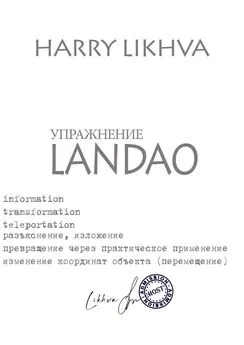Harry Turtledove - Give me back my Legions!
- Название:Give me back my Legions!
- Автор:
- Жанр:
- Издательство:неизвестно
- Год:неизвестен
- ISBN:нет данных
- Рейтинг:
- Избранное:Добавить в избранное
-
Отзывы:
-
Ваша оценка:
Harry Turtledove - Give me back my Legions! краткое содержание
Give me back my Legions! - читать онлайн бесплатно полную версию (весь текст целиком)
Интервал:
Закладка:
Vetera was on the ragged edge of civilization - no two ways about it. When you went from Vetera to Mindenum, when you traveled from the frontier between Gaul and Germany into the heart of the German wilderness, you fell off the edge.
The soldiers and a handful of sutlers who traded with both them and the Germans were the only men from the Empire for many miles in all directions. But for the encampment on the Visurgis, this was Germany, pure and simple. Some other fortified camps - Aliso was the strongest - along the west-flowing Lupia led back toward the Rhine. From Mindenum, one of these days, legionaries could press on toward the Elbe, Augustus’ ultimate goal.
For now, Varus thought it no small miracle that this Roman island persisted in the midst of the German sea. The endless woods stretching away to north and south, east and west, the tops of the trees rhythmically stirred by the wind, put him in mind of waves scudding across the Mediterranean.
When he spoke that conceit aloud, the officers from Legions XVII, XVIII, and XIX didn’t quite laugh in his face, but they came close. “When you see waves on the North Sea, sir, you forget everything you thought you knew about ‘em before,” said a bluff prefect named Lucius Caedicius. “The ones on the Mediterranean . . . well, they’re nothing but babies alongside of these.” Several other men nodded.
Absurdly, Varus felt compelled to defend the honor of the sea that was a Roman lake. “Well, but we don’t sail on the Mediterranean half the year, for fear of what it might do.”
“That’s so, sir,” Caedicius agreed, and Varus smugly thought he’d made his point. But the prefect continued, “You can get waves like that the year around in the North Sea, and bigger ones come winter.”
“Oh.” The Roman governor of Germany felt obscurely punctured.
Varus discovered to his dismay that the Germans around Mindenum paid their taxes in grain and cattle and fruit - when they paid them at all. That made a painful contrast to Syria, where the tax collectors used a system older than the Roman occupation, older than the Greek occupation that preceded it, and probably older than the Persian occupation that preceded the Greek. In Syria, the Empire took every copper it was entitled to. Here . . . ?
“They need to use coins with us,” Varus told anyone who would listen to him - and, since he was the governor, everyone had to listen to him. “Coins, by the gods! How do we know what a cow is worth, or a basket of apples, or a local measure of barley? The natives must go home laughing at the way they cheat us.”
“Sir, the Germans are only just learning about coins. I think you’ve heard that before,” Lucius Caedicius said. “They mostly swap back and forth, like.”
“I don’t care what they do amongst themselves. That’s not my worry.” Varus would gladly have sacrificed an ox in thanksgiving that it wasn’t his worry, too. “But this is supposed to be a Roman province now. When the Germans deal with us, they should act like proper provincials.”
“You said it, sir: this is supposed to be a Roman province,” the prefect replied. “But there’s a difference between what it’s supposed to be and what it is. A dog is supposed to be your friend, but sometimes he’ll bite you anyhow.”
A lot of the other Roman officers seemed to feel the same way. Their attitude left Varus fuming. How was he going to do the job Augustus had given him if the men who were tasked with helping him tried to thwart him instead? Whenever he rounded on them, they denied with oaths that they intended doing any such thing. But what they intended and what they did - or didn’t do - seemed very different to him.
He found he preferred dealing with the Germans to his own folk. With the natives, at least, he knew where he stood. They seemed to lack the refined hypocrisy with which too many Romans armored themselves against the world. When a German said he would do something, he would. When a Roman said he would do something, he would . . . if he felt like it, or if he decided it was to his advantage.
And when a German had a problem, it was commonly a simple kind of problem, one a man could easily deal with. A chieftain paid a call at Mindenum. The German didn’t come alone, of course; one measure of a man’s status here was the size of his retinue. One of the fierce-looking men in his retinue, a certain Tudrus, was also an aggrieved party.
Varus received the two of them in the fancy tent that did duty for a governor’s palace here. He served them wine, as if conferring with equals. In a way, he was: Segestes had been granted Roman citizenship. On advice from his officers, Varus didn’t water the Germans’ wine. To the barbarians, such moderation was only Roman foolishness.
Segestes did handle the thick neat vintage well enough. Tudrus drank a good deal but said little, content to let his chieftain speak for him. Which Segestes did, in slow, accented, but perfectly comprehensible Latin: “I come to you, leader of the Romans, because my sworn man and I have been wronged by another man who is a Roman citizen.”
“Go on, please,” Varus said. If he remembered rightly, he’d learned about this quarrel back in Vetera.
“I will do that.” Segestes had impressive natural dignity. He was tall and lean, his fair hair graving and his bushy mustache also streaked with snow. “You may have heard that my daughter, Thusnelda, was betrothed to Tudrus here.”
The other German stirred. “Yes. It is so.” He spoke much less Latin than Segestes did.
“I have heard something of this.” Varus sipped from his cup. He’d had his wine mixed half-and-half with water. To his way of thinking, even that was strong.
“Thusnelda was betrothed before, to a man named Arminius,”
Segestes went on. “As I say, I bring this matter before you not least because he is also a Roman citizen.”
“I see.” Varus wasn’t sure he did. But he asked what seemed the next reasonable question: “What did this, uh, Arminius do to make you break off the connection?”
“He aims to rebel against Rome. Because of this, I want nothing to do with him.” Segestes spoke with care. He had to pause now and then to remember an ending for a noun or verb. He went on, “I have been a friend to the Romans ever since you began to bring your power into Germany. That is more than twenty years ago now. I think our folk will gain by coming under the Empire. Ask any of your long-serving officers. They will tell you I speak truth.”
“I believe you.” Varus did. Not even a German would be silly enough to spout a lie so easily checked. Varus took another sip from his winecup. It bought him a few heartbeats in which to ponder. “Why do you say Arminius is a rebel? That is a serious charge. What will he say when I ask him about it?”
“He will give you whatever lies he thinks he needs,” the chieftain replied. “He will say he joined the auxiliaries because he wanted to help Rome. But he is like a snake. He colors himself like grass, so you do not see him before he strikes.” He spoke in his native tongue to Tudrus, who nodded vehemently.
“How old is he? How old is your daughter?” Varus asked. “Is she past the age of consent?”
Segestes looked unhappy. “Thusnelda has twenty years,” he said reluctantly. “Arminius has four or five more. But I am the father here. You Romans know what it means to be the father.”
In theory, a Roman paterfamilias had all but absolute power over his descendants. In theory, yes. In practice, the law whittled away at that power year by year. Varus had no idea whether a German father was also, in essence, a paterfamilias. His interest in what passed for law among the barbarians was greater than his interest in falling on his sword, but not a lot greater.
“Meaning no disrespect to you or your friend,” he said, “but sometimes a woman will do what she will do whether her father wants her to or not. Sometimes she’ll do it because her father doesn’t want her to. Did this Arminius kidnap her, or did she go with him willingly?”
Tudrus asked a question in the Germans’ language – probably wondering what Varus had said. Segestes answered in the same speech before returning to Latin. “She went of her own will,” he admitted, even more reluctantly.
“Well, then, my dear fellow . . .” Varus spread his hands. “What do you expect me to do? I am only a governor. I am not a god, to make her undo what she has already done.”
“You are the governor, yes,” Segestes said. “You can order Arminius to give her up. You can punish him for sneaking on to my land and stealing her.”
“Yes, I supposed I could do those things,” Varus said. “But then what? Would her match with your friend here go forward as if, uh, Thusnelda never left your home?” He’d heard the Germans valued their women’s chastity far more than Romans did. That struck him as something which would have been admirable if it weren’t so futile.
Segestes and Tudrus went back and forth in their language. In his bad Latin, Tudrus said, “It to go forward anyhow.”
“I ... see.” Varus wondered if he did. Was Tudrus so loyal to his chieftain that he would accept damaged goods from him? Or was he so eager to lie in a young girl’s arms that he didn’t care if he wasn’t the first? With a Roman, Varus would have judged the second more likely. With one of these savages, who could say?
“Tudrus is of my tribe. He is of my clan. He is of my band,” Segestes said, as if that explained everything. Maybe, to him, it did.
“And this Arminius?” Varus inquired.
“He is of my tribe,” Segestes said. “I would not have sent Thusnelda away from the Cherusci.” The choking guttural with which he began the tribe’s name sounded badly out of place in a sentence intended to be Latin. He went on, “But past that, no. Tudrus is far closer to me: another reason I like this match better.”
“Well, I will summon Arminius. I will hear what he has to say,” Varus said. “But if he does not want to give up your daughter, and if she does not want to leave him . . .” The Roman spread his hands again. “There are such things as accomplished facts. You may not like them. I can’t blame you if you don’t. Sometimes, though, you have to accept them and go on from there. Life is like that.”
Segestes looked unhappy. When he translated for Tudrus, his companion looked unhappier yet. “I think you are making a mistake, sir,” he said. “If you Romans are going to rule in Germany, you cannot be so mild. You must be strong.” He and Tudrus got to their feet. They bowed, and then left the tent without waiting for Varus’ permission.
“Strong,” Varus murmured. He led three legions. Of course he was strong. Of course Rome was strong. Segestes didn’t understand the difference between strength and restraint - or, more likely, the barbarian simply didn’t care.
Arminius had never imagined he could be so happy. He’d taken Thusnelda from her father for his honor’s sake. What he’d felt about her didn’t have much to do with it. He hadn’t had any strong feelings about her for her own sake. How could he, when he hadn’t known her well?
But he knew her now. He’d lain with her once to seal the bargain of her giving herself to him rather than to her father or to Tudrus. And he’d lain with her every chance he got after that, just for the sake of lying with her. He’d never dreamt anyone could be so beautiful or give him so much pleasure.
He’d never realized that anyone who gave him so much pleasure would naturally seem beautiful to him. He was still very young.
Читать дальшеИнтервал:
Закладка:







